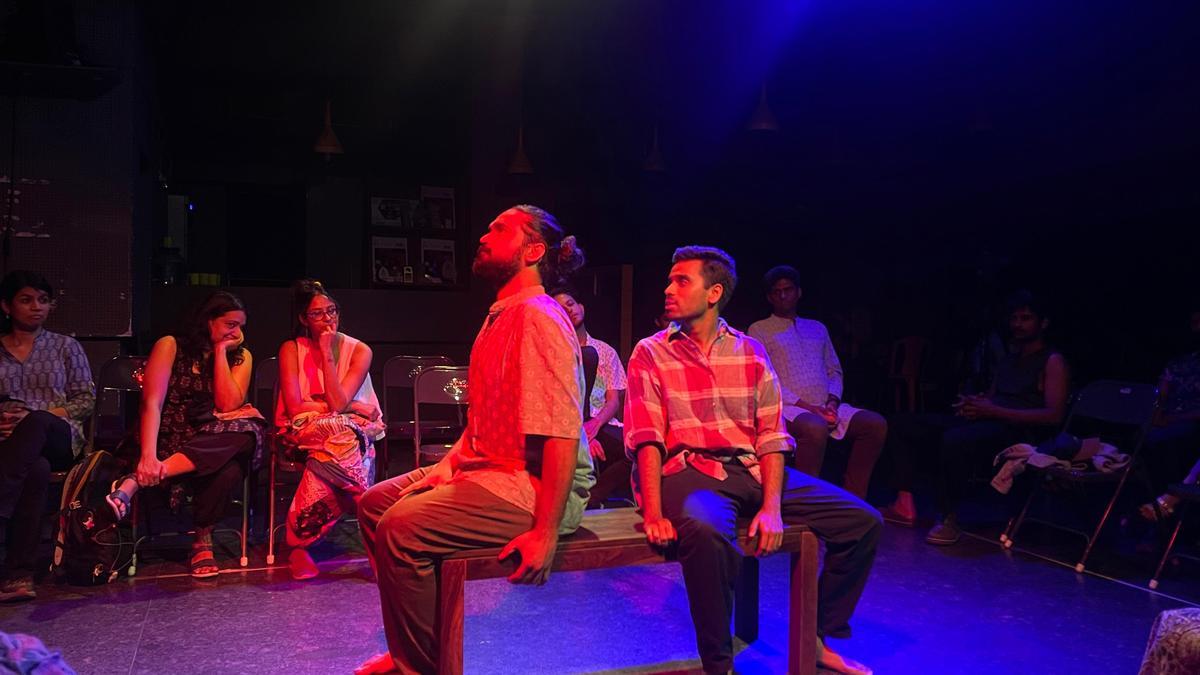
Bengaluru’s theatre community eagerly anticipates the upcoming production from the Last Page Collective, titled ‘The Earthquake,’ which delves deeply into the emotional weight carried by unspoken words in human relationships. Under the artistic guidance of director Samragni Dasgupta, this play promises to explore a universally resonant theme. An adaptation of Bhūmikampa – Das Erdbeben, originally penned in a rich confluence of English, German, and Bengali, the play aims to transcend cultural boundaries and connect with a global audience.
Dasgupta, leveraging her extensive background in acting and directing, has artfully reimagined the script to cater to a local audience. By maintaining its core themes, she has added nuanced layers to the dialogue through the incorporation of English, Malayalam, and Hindi — a choice that allows actors Lesley Amol Simeon and Thamam Mubarish to deeply embody their characters using their native languages. This multilingual approach mirrors the diverse cultural fabric of Bengaluru.
The production’s minimalist set, consisting solely of a single bench, directs the audience’s attention squarely onto the actors and the underlying emotions that fluctuate between them. Director Dasgupta articulates, “The constraints imposed by minimalism serve a dual purpose: they prompt the audience to focus entirely on the actors’ performances and challenge the actors to expose their vulnerabilities without refuge in elaborate set designs.”
Shania Mathew, the assistant director, asserts the tremendous impact of the audience’s attentive presence in this intimate setting. “We aim for the audience to feel the palpable tension in the air, to hear every sigh, every hesitant breath, and to experience the loaded silences.”
‘The Earthquake’ penetrates the complexities of modern existence, particularly highlighting the isolating nature of urban life in a bustling city like Bengaluru. According to Dasgupta, “The play engages with themes of connection in a society leaning towards individualistic tendencies. Our hope is that many Bangaloreans see their own urban isolation mirrored here.”
Beyond the specifics of Bengaluru, the play deftly examines a fundamental human condition — loneliness. Dasgupta notes that the idea for this collaboration blossomed from a discussion about loneliness. Her co-director Shania adds, “The play scrutinizes the elements that prevent us from becoming our most vulnerable selves.
. It probes whether we can, or even if it is possible, to shed all our protective layers in front of others.”
A noteworthy aspect of this production is the enriching collaboration between Dasgupta and German playwright Marvin Krause. “We were intrigued by how a stream-of-consciousness play would unfold,” says Dasgupta. “While the play essentially revolves around a conversation between two people, it was through the creative process that we realized our cultural differences and how they added depth.” This fusion of differing cultural perspectives enhances the exploration of human connection within the play.
‘The Earthquake’ doesn’t seek to provide definitive answers but instead aims to provoke thoughtful questions. Mathew explains the intention behind this approach: “We’ve deliberately withheld clues and hints. The play is an experimental piece… We intend to leave the audience with more questions than answers, encouraging them to reflect on their own roles in interpersonal relationships.”
Boasting a minimalist aesthetic, multilingual dialogue, and profound examinations of unspoken truths, ‘The Earthquake’ promises to be a thought-provoking theatrical experience. This production invites audiences not only to observe but to actively engage and reflect on their own connections and the unspoken words that linger within their lives.
The Earthquake, staged in English and under the direction of Samragni Dasgupta, is scheduled for performance at the Goethe-Institut / Max Mueller Bhavan Bangalore on June 5 at 7:30 PM. Tickets are available through BookMyShow. This promises to be a riveting evening of theatre, pushing the boundaries of traditional storytelling and leaving a lasting impression on its audience.












